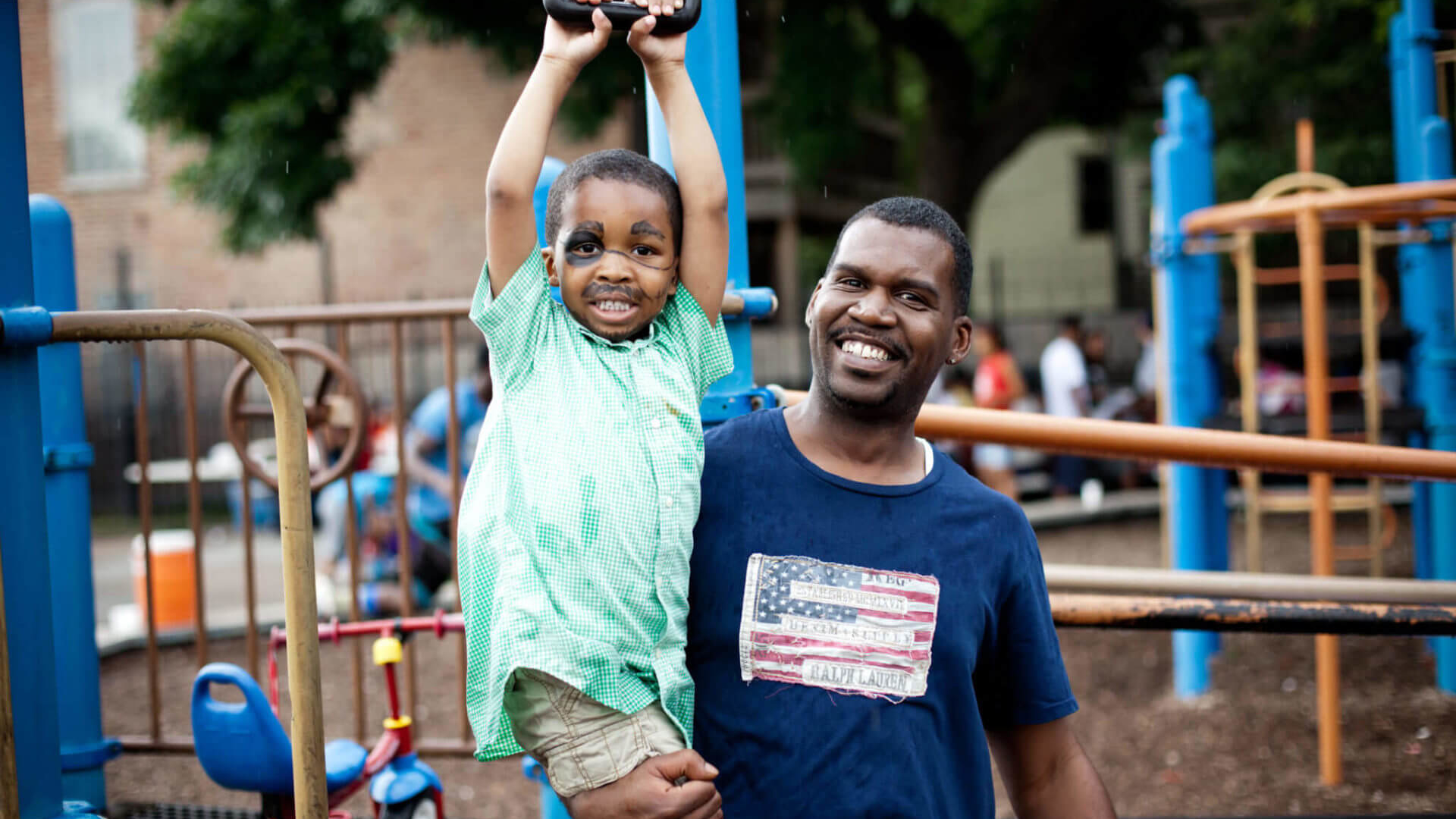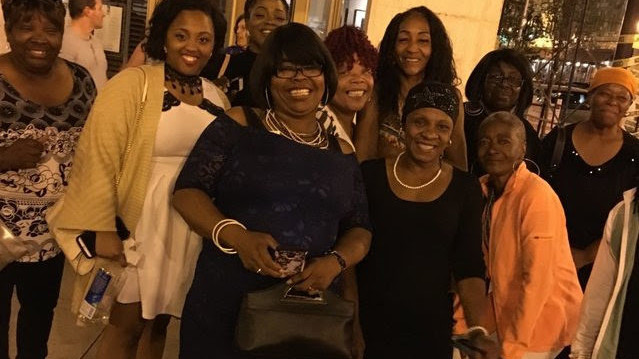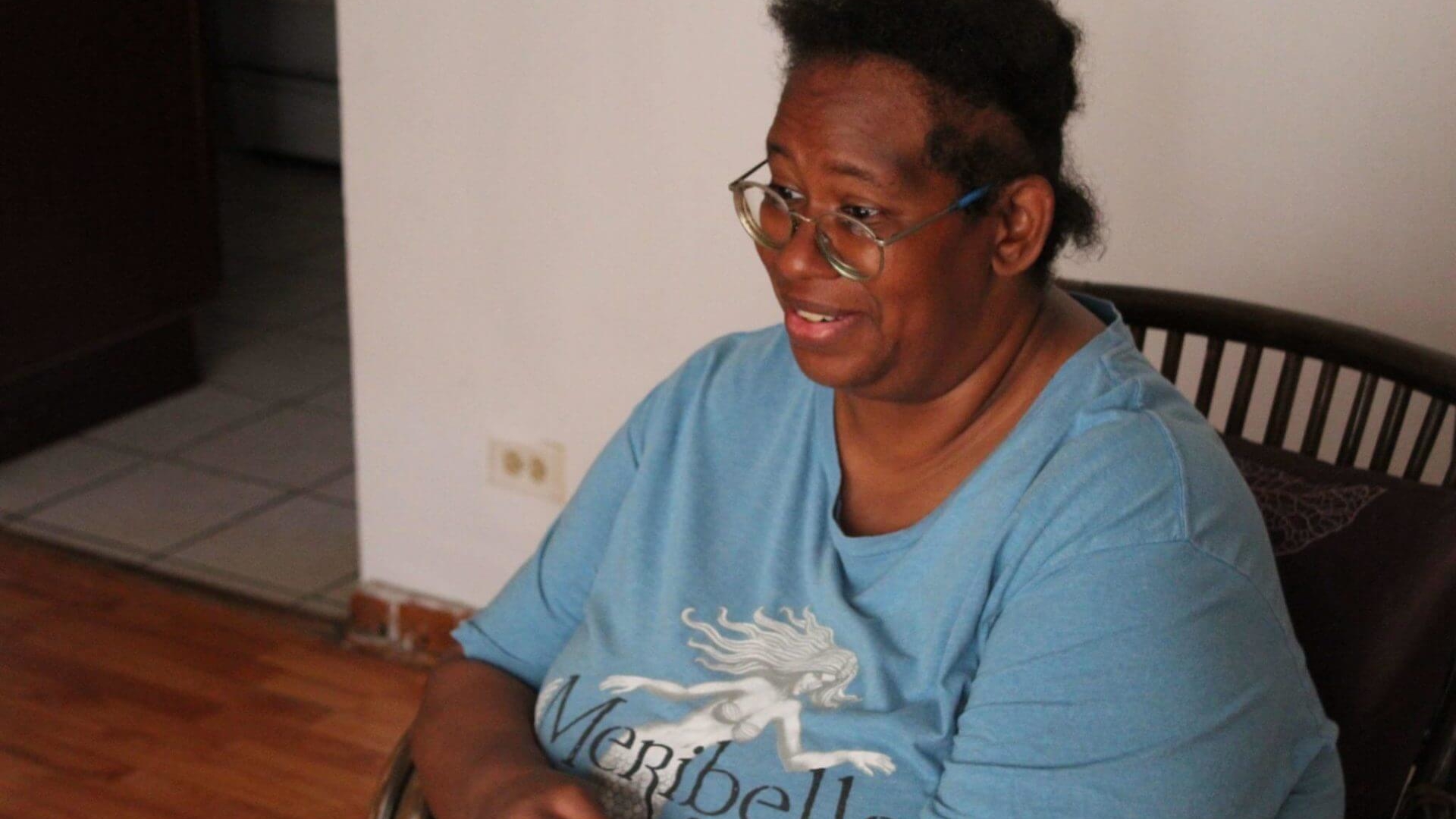Though access to housing has always been important for the wellbeing of individuals and communities, the outbreak of COVID-19 has made this more apparent than ever.
In response to the COVID-19 crisis and the vulnerability of those experiencing homelessness, All Chicago and the Chicago Continuum of Care (CoC) developed the Expedited Housing Initiative (EHI). EHI is a homeless intervention program that uses federal funding to connect individuals and families to available rental subsidies and units quickly by removing barriers.
To effectively carry out the program, EHI hosts Accelerated Moving Events (AME) at shelters, drop-in centers, and encampments. During these one-day events, participants are able to complete several steps of the housing process. Breakthrough hosted an AME on April 13, 2021.
Housing First
Over the last year, Breakthrough has taken several steps to ensure the health and safety of guests in the shelters, including mask-wearing, implementing an in-take process, and adjusting spaces to allow for social distancing. However, in shelters across the city, congregate living situations still present a risk.
EHI, like Breakthrough, employs a Housing First model to quickly connect individuals and families to housing without preconditions or barriers to entry. This approach recognizes that having a home is foundational and makes that the focus before addressing other obstacles – such as unemployment or mental health challenges – blocking a person’s journey to stability. Housing First is a proven, dignifying method that affirms the right every individual has to a home.
Lauren Cole, Director of Housing, says this event and the Housing First model is important in addressing homelessness and for greatly reducing the risk of COVID-19 infection.
“It allows [those experiencing homelessness] the opportunity to move into a place that they can not only call home, but also be much safer, where they can protect themselves better from the virus,” she says. “While we are doing everything we can to protect participants and our guests, this opportunity allows them to feel protection on a different level.”
A Day of Excitement
During the event, Lauren hurriedly guided participants to the waiting room, then to the room where they could work with the AME team to view photos of units, fill out an application, and choose items from the Chicago Furniture Bank.
“Pure excitement, pure joy – there is a sense of urgency and hope in the air today,” she says.

One of the participants was Princess, who was connected to Breakthrough by The Salvation Army. She said she arrived feeling excited and nervous.
“My experience has been that the staff has been very supportive, always had a listening ear,” she says. “If I felt out of sorts and was uncertain, they would help to guide me and give me insight to reinforce that I’m headed in the right direction.”
Princess recently began experiencing homelessness. As she waits to begin the housing process, she adds, “I’m grateful that I’m here today and for all the resources they have at their disposal and for how comfortable that they try to make the clients.”
During the Accelerated Moving Event at Breakthrough, 26 men and women were connected to permanent housing and will move in the coming weeks. Each participant will receive ongoing financial and support services.
“Here at Breakthrough we believe everyone should have a place to call home,” says Executive Director Yolanda Fields. “I’ve never seen an event or campaign on behalf of those impacted by homelessness that ended with people actually being given the opportunity for housing so quickly.”
The Future of Homelessness in Chicago
Beyond housing an unprecedented number of individuals and families, the Expedited Housing Initiative seeks to leverage COVID-19 funding to create a lasting, sustainable impact in Chicago’s efforts to end homelessness.
“I think COVID, while it has been devastating, it has also highlighted some of the things that we really need to work on in our city,” Lauren says. “And, I think the response to get people housed faster is something that we can definitely learn from.”
Through this unprecedented program in response to the pandemic, the homelessness system is building capacity for the long-term, and Lauren is hopeful about programs like EHI and that the work to end homelessness won’t stop in Chicago.
“I hope that the system continues to work harder and faster to get people in their own homes,” she says.
For more information about the Expedited Housing Initiative, visit allchicago.org/ehi.
Author
-

Breakthrough partners with people to build connections, develop skills and open doors of opportunity.
Related Posts
February 12, 2019
Program Aims to Remedy Housing Crisis with ‘Housing First’ Service for Families
One of the greatest challenges facing many communities today is a shortage of affordable family housing, which has been connected to elevated levels of homelessness, incarceration, and low employment. If our aim is to strengthen and develop communities, we must invest in the well-being of families and work to ease access to necessities like affordable housing.
Permanent Supportive HousingTransitional HousingVision Shapers
November 3, 2017
Women’s Center Night Out
Each quarter, A Night Out invites women from Breakthrough’s transitional housing program to enjoy an evening away that includes dinner and a comedy show.
June 23, 2017
A Safe Summer Also Means Safe Housing
Tanya and her 15-year-old daughter, Mariam*, became homeless last summer. Tanya had lost her job and their apartment, both at the same time.





